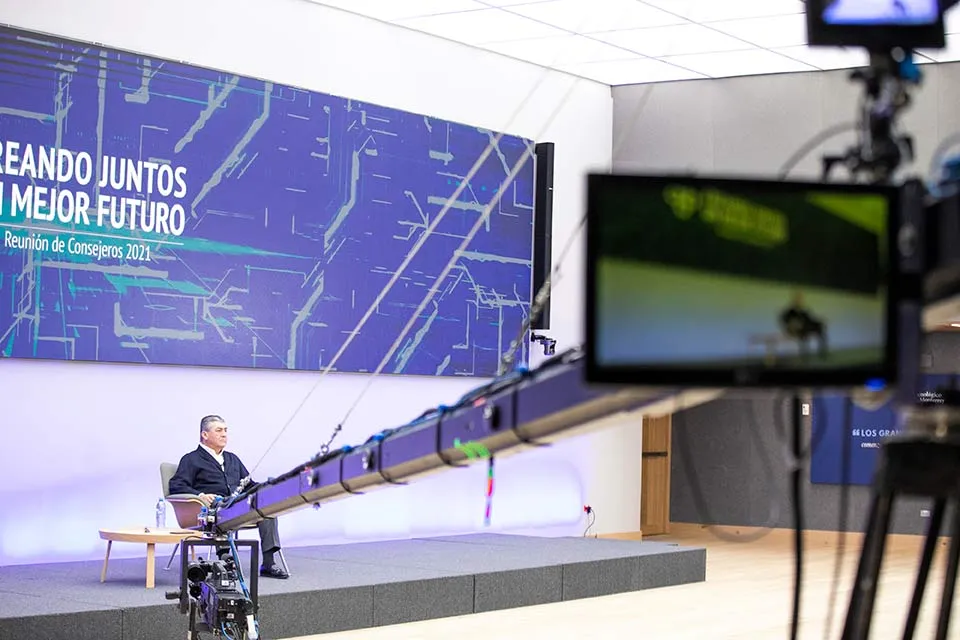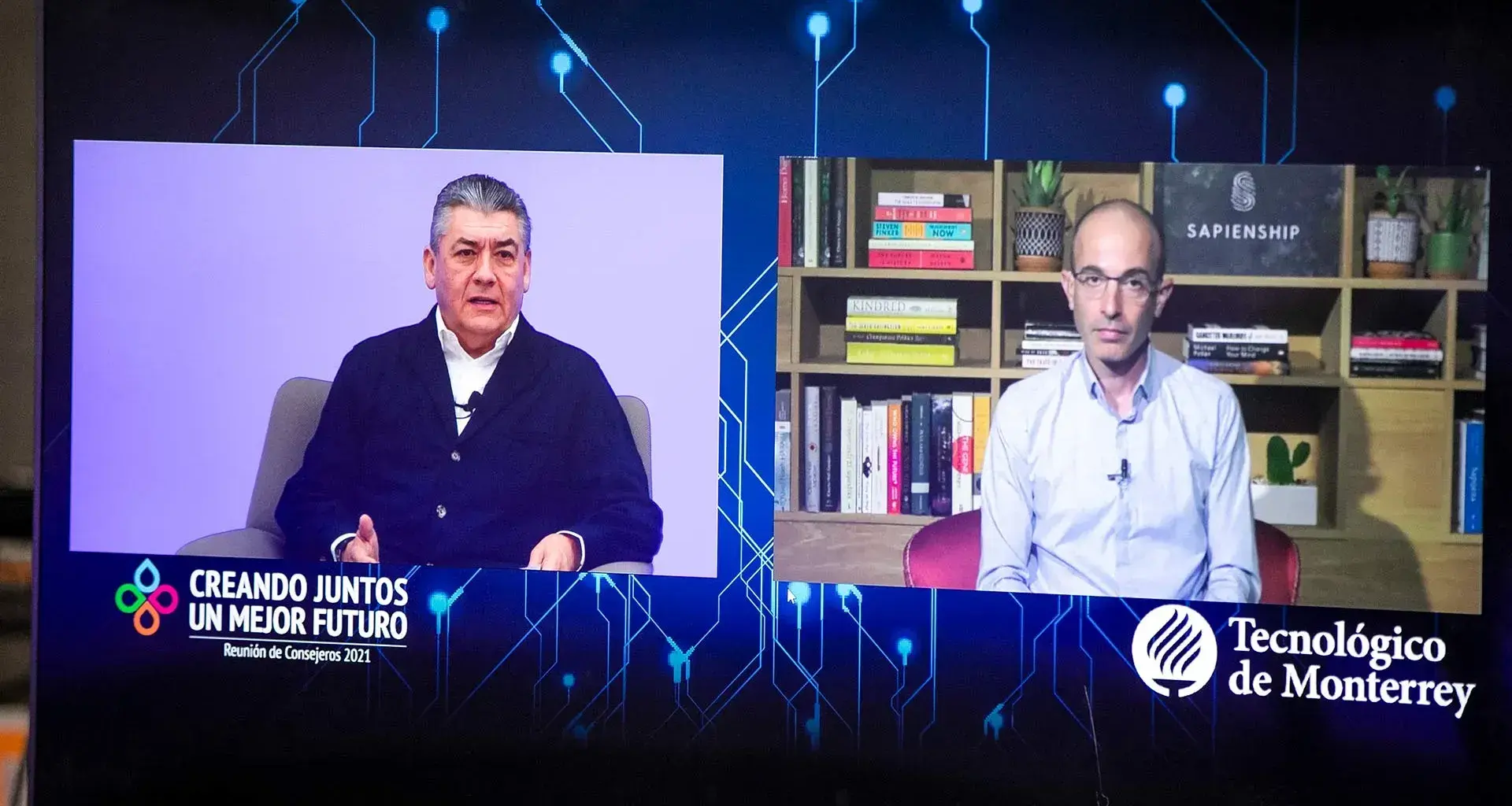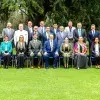In a talk with Tec de Monterrey’s board members, prominent Israeli philosopher and writer Yuval Noah Harari predicted that the most positive outcome for humanity from the crisis caused by the pandemic will be achieving an unprecedented level of global cooperation.
Harari envisioned possible future scenarios in the conversation “Rethinking our past to build our future”, held with José Antonio Fernández, Chairman of the Board at Tec de Monterrey.
He also shared potential opportunities for countries like Mexico if they were to do things such as promote regional integration within Latin America.

The world of the future
He said that the health, economic, and social challenges caused by the pandemic should generate global cooperation based on emerging technologies such as artificial intelligence.
Harari believed that going the other way would be counterproductive.
“One scenario is that humanity will come together to face this crisis, this virus, and we can move forward with a global action plan, not only to contain the pandemic but also to deal with the economic repercussions.
“If we could do this successfully, it would lay the foundation for subsequent cooperation in many other areas, such as dealing with climate change.”
“On the other hand,” he added, “if we fail to cooperate internationally to tackle the virus, then the repercussions will be very negative.
“So far, we have seen very little cooperation, but it’s not too late and it’s still within our grasp to solve it,” he said.

Mexico’s big opportunity
The writer of Sapiens: A Brief History of Humankind, a book which has inspired leaders such as Bill Gates and Barack Obama, said that Mexico and the rest of Latin America should focus on coming together.
He argued that this will enable them to tip the scales more in their favor, away from where they currently lean towards global technological superpowers like the United States and China.
Harari believes that a lack of coordination between Latin American countries could lead to total dependence on rules imposed by the superpowers.
In turn, this could cause further economic inequality across the globe, similar to that which occurred in the 19th century during the Industrial Revolution.
“Artificial intelligence is a much more powerful technology, and you can’t afford to ignore it,” he said, by way of example.
“Countries such as Mexico have the opportunity to cooperate with other countries in similar circumstances to earn themselves a place at the table where global decisions are made,” he added.

The data war
To this end, Harari said that if Latin American countries were to stand together, they could become a third power, serving as a counterweight to the United States and China.
He argued that these nations, with technology companies such as Facebook or Alibaba, have a lot of power due to the quantity of data they have collected from billions of users around the world.
This, he continued, could be dangerous, as having such a large amount of information accumulated by private companies could give rise to controls that go beyond the powers of established governments.
“Imagine the situation 20 years from now, when Mexico’s entire technological infrastructure is controlled by American and Chinese companies. Then, all the data on politicians, judges, and military personnel would be in the hands of other nations.”
According to Harari, this scenario would lead to a new colonialism, which would no longer be territorial, but rather the result of data processing using artificial intelligence.
“You will no longer need to send tanks to a country to control it; all you have to do is take its data. If there’s enough data, you can take control of that country,” he concluded.
Special guests of the Board Meeting
Members of the Tec’s national and local boards receive information on how the university is doing and also hear talks from international experts at the institution’s Annual Board Meetings.
In addition to Harari, Thomas Friedman, a well-known Pulitzer-winning journalist and columnist for The New York Times, also participated in the annual Tec Board meeting and shared his analysis of the current geopolitical situation.
On Wednesday 16, Anne Applebaum, the political scientist and Pulitzer Prize winner, will participate and will speak about the state of democracy around the world.
ALSO READ:





